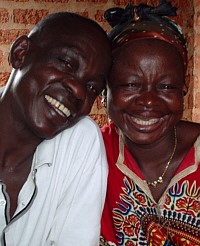Kabba in Central African Republic

Photo Source:
Anonymous
|
Send Joshua Project a map of this people group.
|
| People Name: | Kabba |
| Country: | Central African Republic |
| 10/40 Window: | No |
| Population: | 111,000 |
| World Population: | 194,000 |
| Primary Language: | Kabba |
| Primary Religion: | Ethnic Religions |
| Christian Adherents: | 50.00 % |
| Evangelicals: | 17.00 % |
| Scripture: | New Testament |
| Ministry Resources: | Yes |
| Jesus Film: | Yes |
| Audio Recordings: | Yes |
| People Cluster: | Sara-Bagirmi |
| Affinity Bloc: | Sub-Saharan Peoples |
| Progress Level: |
|
Introduction / History
Kabba is a Sara language. Some speak different dialects, which are mutually intelligible.
They live in the North of the Central African Republic (C.A.R.), which was a French colony called Ubangui Shari from 1887 to 1960. Others live in Nigeria and in Cameroon. where they fled during civil wars and persecution by other ethnic groups.
What Are Their Lives Like?
The Kabbas cultivate cassava, millet, corn, bananas, sweet potatoes, sesame and cotton. They hunt gazelles, antelopes, wild boars, porcupines, monkeys and pangolins. Some are fishermen. They lead a life full of hardships with much courage and faith of better things to come one day. They share the little food they may have with great generosity.
What Are Their Beliefs?
They are mostly Christian (Catholic, Protestant, Pentecostal) with a mix of animist beliefs. Some are Muslim. All indulge in ethnic religion.
What Are Their Needs?
They need better medical care in their homeland. There is a need for victory over corruption.
Prayer Points
Pray for the Kabbas to have their medical needs met and for some to get the training they need to help others with medical issues.
Pray for the Holy Spirit to move mightily in Kabba churches.
Pray for their churches to be defined by discipleship, love, humility and peace.